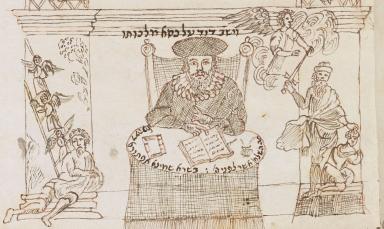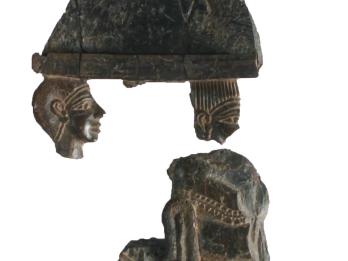Takkanot Fez (Regulations of Fez): On Financial Matters
The Sephardic Community of Fez
1691
Regulation on the Matter of Impoverishing Festive Meals
Since there have been a great many requests about matters of taxes, and the gates of wealth and influence are limited, and we have seen that the general community is oppressed and they have meager means, they are forced to lay out large expenses for banquets, both poor and wealthy alike. Some borrow at interest, in order to reduce unessential outlays, because they see others boasting and spending without restraint. Consequently, even one who is pressed in his livelihood will lose out and incur extravagant expenditures, in an effort to do the same.
Therefore, in order to reduce expenses, and for the benefit of the entire congregation, we have seen fit to institute that anyone who has the custom of holding banquets for his children around the festival of Shavuot [ . . . ] does not have permission to hold more than a single banquet. One who has the practice of doing so on the eve of the festival of Shavuot may do it then, and one who holds it earlier may do it earlier. However, he may not serve any kind of luxurious dishes, such as roosters and pigeons and the like. The same applies to any other banquet, including weddings, circumcisions, or a redemption of the firstborn and similar celebrations [ . . . ]. This regulation shall be observed in our congregation from today for a full five years. Even afterward, one has permission only with the authorization of his honor the rabbi and some of the heads of the community. The officers and heads of the community have the authority to fine as they see fit anyone who breaches the fence and violate this enactment.
As proof that we have thus enacted and agreed for the benefit of the congregation, we have signed after our proclamation to this effect, in the middle ten days of the month of Iyar, here in Fez, may God protect it. The enactment is signed by the perfect sages R. Judah bar Joseph ‘Uziel, and his honor R. Vidal ha-Tsarfati, and his honor R. Menaḥem son of his honor R. David Seriro, and his honor R. Saul Ibn Danan, and his honor R. Maymuān Aflalo. We ratified their signatures, and afterward the leaders of the community signed: Maymuān ben Danan, Moses ha-Kohen, Abraham ibn Shmul, Moses ibn Sonbal, Jacob ibn Elbaz, David ibn Amozag, ‘Oved ben Susan, Moses Kikas, Judah ben Makhluf ben Adahan, Solomon Gabai, and Abraham ben Judah Kavaliero.
Tammuz 5551 [1691]
Regulation on the Matter of Charity, that the Poor of One’s Own City Take Precedence over the Poor of Another City, as This Is the Law
Since the gates of abundance have diminished, the poor have multiplied in this city of ours, and quite a few householders have collapsed under the many troubles, taxes, and levies of various kinds. The wealthy have not found the means to support the aforementioned poor and to observe the instruction of the sages of blessed memory, “regarding the poor of your city and the poor of another city, the poor of your city take precedence, etc.” [b. Bava Meẓi‘a 71a]. There is never a week when six or seven poor people do not come from other cities in the Maghreb, and the greatest proportion are those who come from Ashkenaz and Poland, virtually all of whom bring signed letters from their land, for the purpose of ransoming prisoners. Yet afterward their evil is revealed, as they falsified their letters and take money forcefully and aggressively. Subsequently, they open their mouths wide lawlessly and speak evil things, while the poor of the city together with the rest of the poor of the Maghreb are left with a pittance which is of no use at all. Therefore, we the undersigned have agreed absolutely, in a manner that shall not be violated nor rescinded, that regarding anyone who comes to request funds from the land of Ashkenaz, Poland, and the surrounding countries may receive nothing from the community except two rials and no more, whether he is a rabbi or one of the common people, or if he wants it for ransoming prisoners or the like. Anyone who wishes to give more than that from the funds of the congregation is in violation of this regulation of his honor the court and of the congregation. His declaration is invalid, and he is not to be listened to at all, for he is stealing from the public, and stealing from the poor. Since we have agreed and accepted this regulation, it is not to be rescinded for a period of ten years, and thus we have signed on Rosh Ḥodesh Tammuz, in the year tov le-hodot la-shem [1691]: the perfect sages and outstanding rabbis, our master R. Menaḥem, son of R. David Saroro, his honor R. Vidal ha-Tsarfati, and his honor R, Maymuān Aflalo, and we have ratified their signatures.
Credits
Published in: The Posen Library of Jewish Culture and Civilization, vol. 5.






